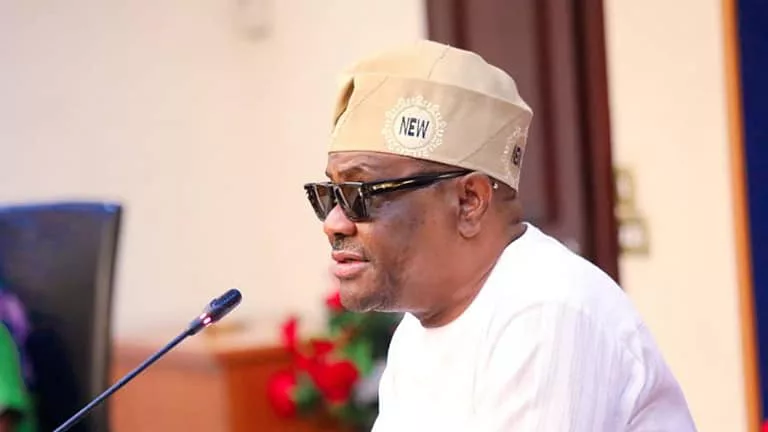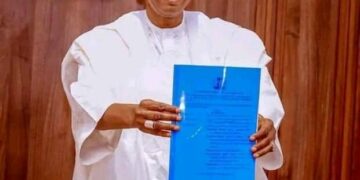Minister of the Federal Capital Territory (FCT), Nyesom Wike, has expressed dissatisfaction with the recent declaration of a State of Emergency in Rivers State, revealing that he had hoped for the outright removal of Governor Siminalayi Fubara instead.
Wike made the statement during a media chat held in Abuja on Friday morning monitored by our correspondent
He addressed the political crisis rocking his home state and the federal government’s intervention.
LEADERSHIP recalls that President Bola Tinubu had declared a six-month state of emergency in Rivers State last month, citing sustained political instability and rising security threats, including pipeline explosions.
The president’s proclamation led to the suspension of Governor Fubara, Deputy Governor Ngozi Odu, and all members of the State House of Assembly. In their place, Tinubu appointed Vice Admiral Ibok-Ete Ibas (rtd.) as sole administrator to temporarily oversee the state’s affairs — a move that has since triggered mixed reactions nationwide.
Reacting to the development, Wike, the immediate-past governor of Rivers State and a central figure in the ongoing political turmoil in the State, said the emergency rule was not what he had hoped for.
“As a politician, I am not happy with the declaration of Emergency Rule in Rivers State. I wanted the outright removal of the governor,” Wike declared. “But for the interest of the state, the president did the right thing to prevent anarchy in the state.”
Wike, who has maintained a tense relationship with Governor Fubara since the latter took office, claimed Fubara had already lost the legitimacy to govern.
“The governor was gone. He was gone, yes… so when people say the president did this, I say they should be praising him. Every morning, they should go to the president and ask, ‘Can we wash your feet for saving us?’” he added.
The protracted feud between Wike and Fubara has fractured the state’s political structure. The battle for control of the state escalated into a full-blown crisis within the State House of Assembly, leading to the suspension of 27 lawmakers who later defected to the All Progressives Congress (APC). This also birthed parallel assemblies and rival speakers, further deepening the instability.
While President Tinubu’s intervention aimed to restore order, the move has faced criticism by some as undemocratic, with others supporting it as a necessary step to avert chaos.





